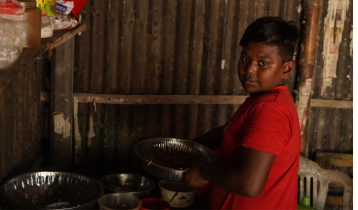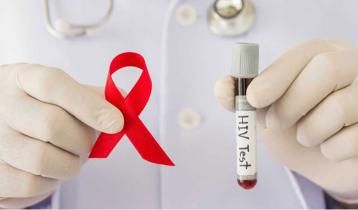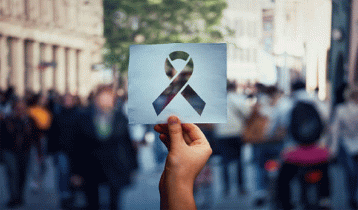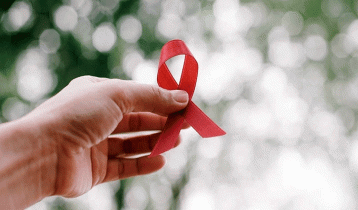Number of men with AIDS increasing in Bangladesh
Md Nazmul Islam Faruque || risingbd.com
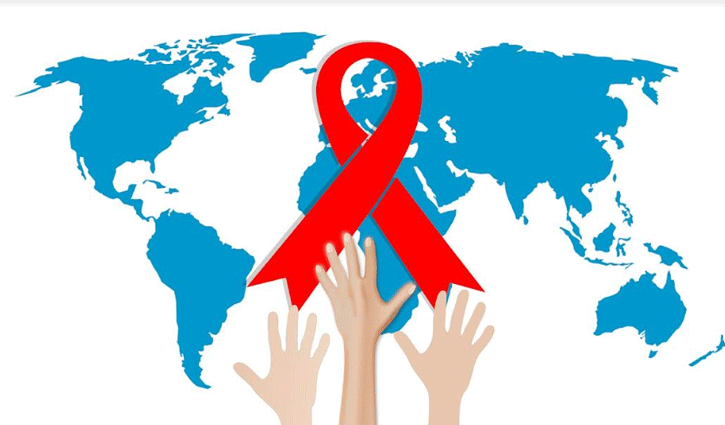
The number of people infected with HIV/AIDS is increasing in Bangladesh. A large proportion of people newly infected with AIDS in 2023 are male sex workers. This information is from the report of the National Tuberculosis, Leprosy and AIDS Control Program of the Directorate General of Health Services of Bangladesh.
According to the report, 1,276 people were infected with AIDS in Bangladesh in 2023. Of them, 1,118 are Bangladeshis and the rest are displaced Myanmar Rohingyas living in different camps in Cox’s Bazar. 266 people died of AIDS. Of the new AIDS patients, 850 are men and the rest are women and third gender. In 2022, there were 947 cases of AIDS and 232 deaths.
National Tuberculosis, Leprosy and AIDS Control Programme Line Director, Directorate General of Health Services, Dr. Mahfuzur Rahman said the number of cases and deaths in a year will be the highest in 2023 since the first AIDS case was detected in 1989.
According to the Department of Health, the first AIDS patient was diagnosed in the country in 1989. So far, 10,984 people have been diagnosed with AIDS. There have been 2,886 deaths. The number of people carrying HIV virus in Bangladesh is more than 15,000. The number of HIV-positive men is increasing. The disease also affects gay men. This year, 9.5% of those infected are men. Those who take drugs intravenously using injections, those drug addicts are also suffering from AIDS.
Dhaka has the highest number of 342 patients of AIDS among Bangladeshi citizens in a year. Besides, 246 people have been diagnosed with AIDS in Chittagong, 175 in Rajshahi, 141 in Khulna, 79 in Barisal, 61 in Sylhet, 40 in Mymensingh and 34 in Rangpur districts. Of those diagnosed, 850 are men and 278 are women. There are 9 third gender.
Directorate General of Health Services (DGHS) Director General (DG) Prof Dr. ABM Khurshid Alam said, “It is not possible to prevent AIDS. The government is providing all kinds of services including free treatment, medicines for AIDS. We use a lot of reusable things in medicine, including surgery. Be sure to disinfect these items. Apart from this, it can be seen that a person has come to get a colonoscopy, endoscopy or any other health test.”
Additional Director General of Directorate General of Health Services (DGHS) Prof Dr. Md. Ahmedul Kabir said that he might have died earlier as an unknown disease. Now that the AIDS control program has improved, more patients are being diagnosed, and AIDS-related deaths are being identified as AIDS. Another may be the age of people with AIDS in Bangladesh, many of them are dying a natural death.
How does AIDS spread?
HIV can only be transmitted from an infected person to another person. There are several ways in which HIV can enter the body of a person carrying HIV:
A woman who has unprotected sex with an HIV-positive person has sexual intercourse with the HIV-positive person through the vagina, anus or mouth.
The blood of a person carrying HIV enters another person’s body.
If the person carrying HIV uses an injection syringe that is carrying HIV.
An HIV-positive mother can pass the virus to her baby during pregnancy, childbirth, or through breastfeeding.
AIDS will be cured if any of the items used by a person carrying HIV has infected blood on it and if it comes in contact with the exposed or cut skin of the body.
Tips to prevent AIDS:
Social and religious norms must be respected. Premarital sex should be avoided. Only have sexual relations with a faithful husband or wife. Multiple sexual partners should be avoided.
Avoid sexual intercourse if your partner is infected with HIV, or use condoms regularly and correctly.
If blood or organs need to be taken in the body, it should be checked to make sure that there is no HIV in the blood or organs.
A single-use sterile needle or syringe should be used.
Be sure to sterilize reusable needles, syringes, or appliances before use.
It has been found that having a sexually transmitted infection or genital infection increases the risk of HIV infection. Therefore, if someone has a sexually transmitted disease or reproductive system infection, it should be treated quickly.
Preventive information should be disseminated to the public through various media to raise public awareness.
Dhaka/AI



